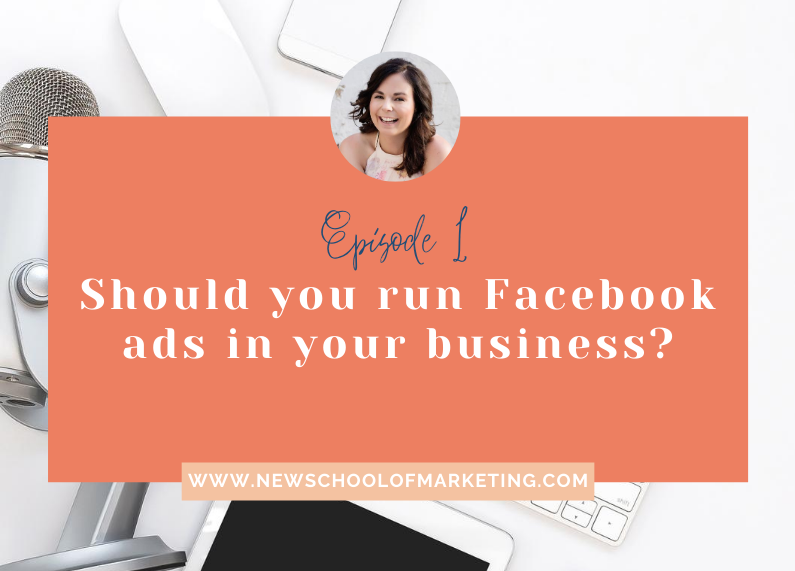
Should you run Facebook & Instagram ads in your business?
I get asked this question quite often, and because I get paid to manage people’s Facebook ads you might think that I have a strong bias towards saying yes.
And you’re right, I do think that most businesses could benefit from Facebook advertising. After all, it’s the biggest social media platform with more than 2.8 billion active users worldwide, so your ideal client is bound to be using it.
BUT, there are a lot of things that need to happen before someone is ready for Facebook ads.
Inside this episode I discuss what you need to have in place before you start running Facebook & Instagram ads in your business.
Connect with me
Website: www.newschoolofmarketing.com
Facebook: @newschoolofmarketing
Facebook group: @newschoolofmarketing
Instagram: @bianca_mckenzie
Love the New School of Marketing Podcast?
Let’s be honest and upfront, because you know that’s what I’m all about. Podcast reviews are super important to iTunes and the more reviews we receive the more likely iTunes will reward us with better reach.
I want to reach more course creators, store owners and awesome business builders that can add extreme value to our awesome insiders. I already love that you’re here and ready to rock your business, but I’d be extremely grateful if you would review me on iTunes and SUBSCRIBE!
Can’t wait to teach you everything I know about online marketing!
Transcript
Welcome to the very first episode of the New School of Marketing podcast and today we’re diving into the topic of organic vs paid marketing and whether you should run Facebook ads in your business.
Let’s first take a look at what organic and paid marketing means.
Organic marketing = the definition of organic marketing refers to the act of getting your customers to come to you naturally over time, rather than ‘artificially’ via paid efforts. Organic marketing can be done through a number of ways, but I will mostly talk about using social marketing, email marketing and traffic to your website or online store.
Paid marketing = the opposite of organic marketing. It’s the act of attracting customers to your business through paid efforts. This could be through many ways, for example it could be through social advertising, traditional advertising (radio, newspaper, television, direct mail etc), sponsorships or search engine advertising.
When I speak about paid marketing I mostly refer to Facebook and Instagram advertising because that’s what I’m most familiar with. It’s what I do for my clients every day.
Also, when I say the term Facebook advertising I really mean Facebook AND Instagram advertising as the two are both owned by Facebook and both managed through the same platform.
Now, should you run Facebook ads in your business?
I get asked this question quite often, and because I get paid to manage people’s Facebook ads you might think that I have a strong bias towards saying yes.
And you’re right, I do think that most businesses could benefit from Facebook advertising. Afterall, it’s the biggest social media platform with more than 2.8 billion active users worldwide, so your ideal client is bound to be using it.
BUT, there are a lot of things that need to happen before someone is ready for Facebook ads.
So my short answer to the question is that yes, you should definitely investigate Facebook ads as an option to grow your business, but my long answer is that it depends.
Firstly, your paid marketing (or advertising) should exist to support your organic marketing efforts and organic marketing should support your paid marketing efforts. It’s not one or the other and it’s not a set-and forget type deal.
Your paid marketing will get much better results if your organic marketing is there to support it.
For example, one of my clients is fantastic with their Instagram marketing. They get lots of engagement on their posts, they show up on Instagram stories, they engage with their audience on a daily basis and their online community is active. When we started running ads this made a big difference.
The ads get engagement and people take action based on the ads. If their organic social media was non-existent this would be a different story.
They might still have done ok but using both organic and paid marketing meant that during launch time when the doors to their online program opened there was such a high vibe around the launch that their sales kept coming in all throughout the open cart period.
The same goes for one of my e-commerce clients. Through showing up on Instagram and Instagram stories and really connecting with her audience through being raw, open, honest and showing behind the scenes daily, the sales from ads campaigns are seeing a return on ads spend of 30x on average. This means that for every dollar spent on ads, she gets $30 in return.
The reason that I know how much of a difference her organic marketing makes is because I have a few clients that sell to the same audience and the clients that put a lot of effort into their organic marketing are seeing a much higher return on ad spend. In some cases triple the amount.
So, your paid marketing should support your organic marketing and the other way around.
Secondly, your offers need to already convert.
What do I mean by that?
If you sell online courses, coaching or even 1:1 services you need to already be selling before investing in Facebook ads.
Facebook advertising amplifies what is already happening, so if you’re already selling to your audience organically, Facebook ads can amplify this.
If you’re not already selling but you’ve been trying really hard through various marketing channels, you need to go back to marketing 101 and evaluate what is causing this.
Facebook ads cannot fix a conversion problem. You’ll need to look at why you are not selling and fix it first before spending (or wasting really) money on ads.
There are a few exemptions to this, which I will not go into today but I’ll do a separate podcast about it.
But the main thing is that your offer, or your product, needs to already convert. Meaning, it already sells.
Thirdly, you need to know your numbers.
Knowing that your offer converts isn’t enough. You need to know your numbers at every step of your funnel.
- How many people are visiting your website?
- How many people are visiting your landing pages?
- How many people are signing up for your free offer, if you’re a course creator?
- How many people are opening each of your emails?
- What’s the percentage of people signing up for your free offer, which is your conversion rate for your landing page?
- What’s the percentage of people opening each of your emails?
- How many people are watching your webinar if you do a webinar?
- How many people have downloaded your free thing?
- How many people are signing up for your course?
- How many people are booking a call to work with you?
Or if you are in e-commerce, how many people are visiting your website?
- How many are adding to cart?
- How many are initiating checkout?
- How many purchases?
You need to know all of your numbers before you dive into Facebook ads.
When you have the right numbers, you can almost accurately predict what your return on ad spend will be.
Without knowing your numbers it becomes a guessing game and you won’t know if you’re actually ready for Facebook ads.
So, dive into your numbers first.
The main aim for running Facebook and Instagram ads is to amplify your traffic, your sales and your income.
Facebook can definitely help you do this, but you need to find out if you’re ready first. Once you have a converting offer or product, you know your numbers and the numbers are looking good in terms of benchmarks needed to increase your results, then I wholeheartedly recommend running Facebook ads in your business.




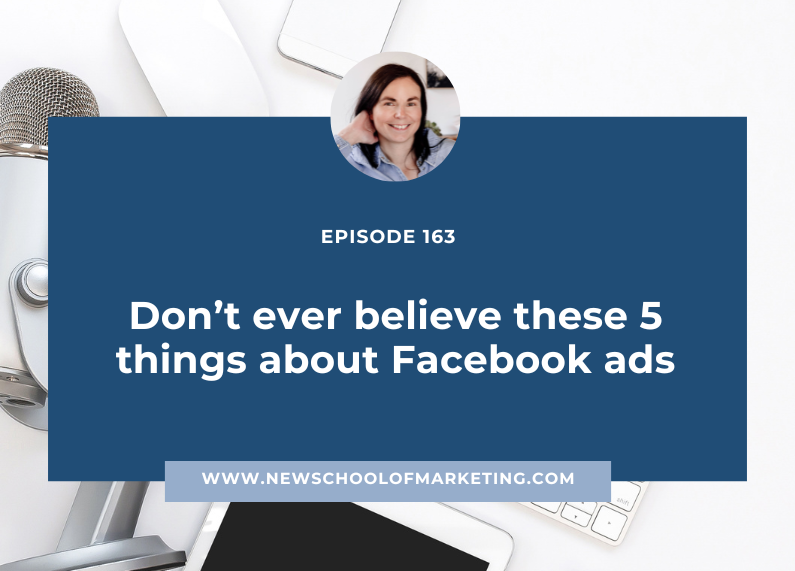
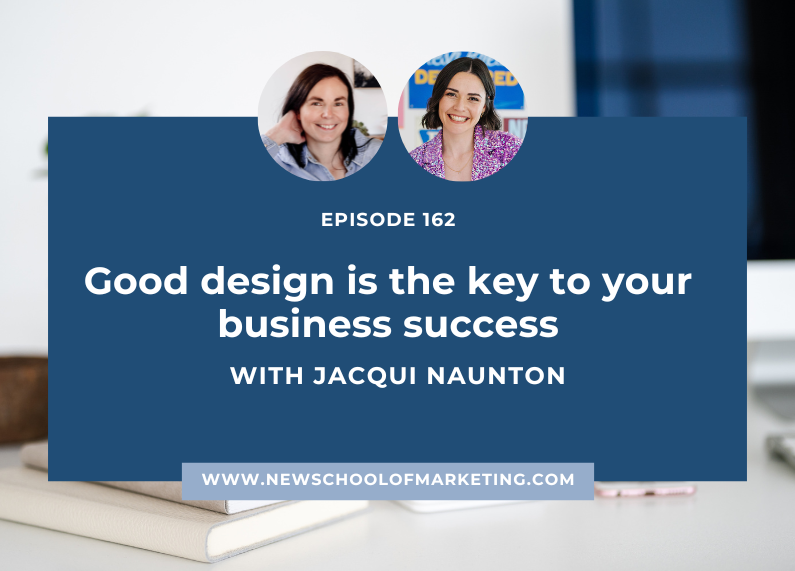
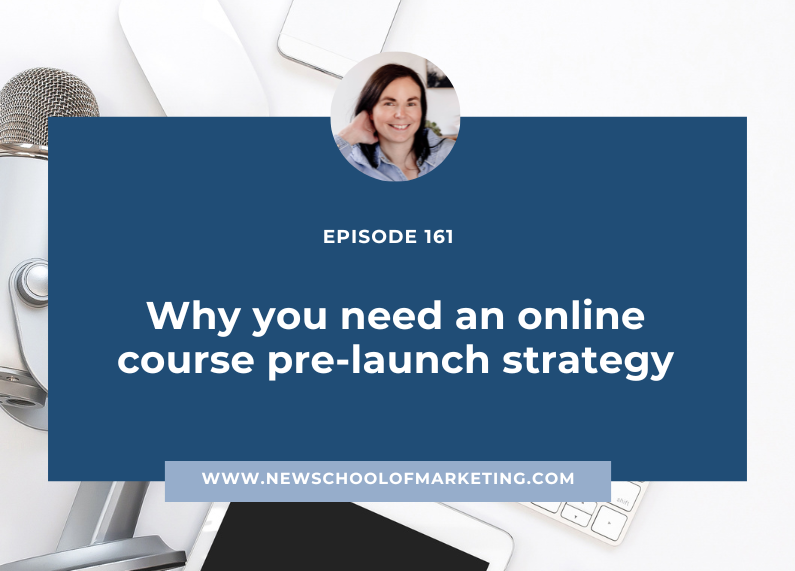
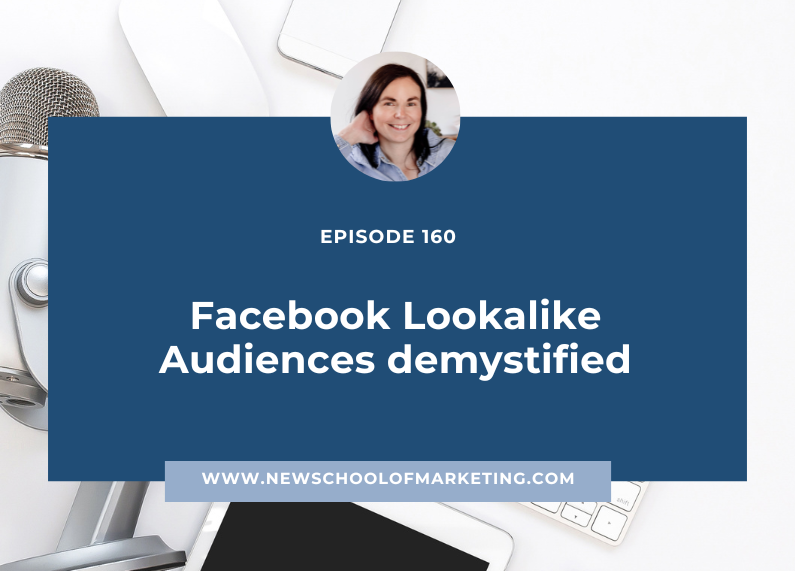
0 Comments